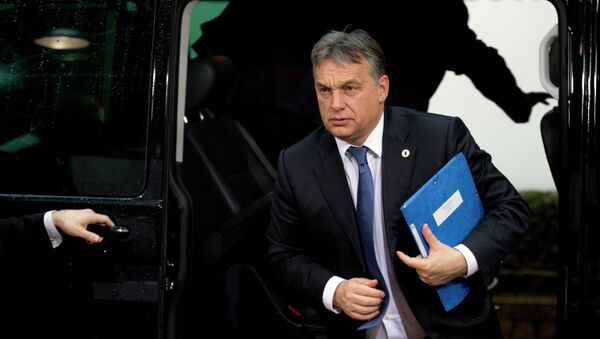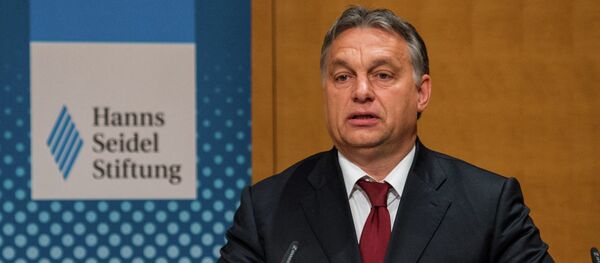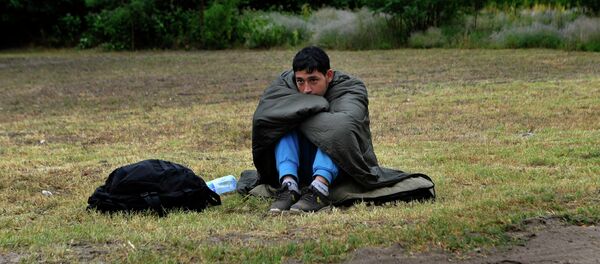"We, too, are people of the heart, but we also have a brain, and the two must be kept in balance."
Orban said he intends to raise the subject of the increasing pressure of migration on Hungary at the summit; his government says migrants are arriving in his country in the largest numbers, more than in Italy or Greece.
"By contrast, these two countries have recently been given some €160 million [$179 million], while Hungary has received one and a half million," said Orban.
He added that Hungary needs to be given more funds by the EU to deal with the number of migrants.
"But if they choose not to give us money, we shall still protect our borders."
On Thursday the head of the Prime Minister's Office, Janos Lazar, told a press conference that Orban had written to the head of the European Commission and the European Parliament regarding the EU policy of sending back migrants to their first point of EU entry.
For the first phase of the policy, said Lazar, other EU member states are planning to send some 16,000 migrants back to Hungary, who entered the EU through Hungary's borders and then moved on to different countries. The Hungarian Interior Ministry estimates that the number of migrants returning to Hungary as a result of the policy may increase to as many as 200,000 over the next six months.
The EU point of entry for many of the migrants was actually Greece, said Lazar, explaining that the Hungarian government therefore disputes the enforced return of the migrants to Hungary, and requests that the Austrian and German authorities send them back to Greece.
Megvan a döntés: kétszintű lesz a kerítésrendszer, és 10 méter mélyen nyúlik be a magyar területre. A kormány… http://t.co/VlQpQz4NWg
— hvg.hu (@hvg_hu) 25 июня 2015
Chief of the Prime Minister's Office Janos Lazar speaks to the press on Thursday.
The Hungarian Office of Immigration and Nationality has warned other EU member states that due to a lack of resources, the country is unable to receive the first of the 16,000 migrants that they are planning to send to the country by coach in the near future.
"Hungary seeks fairness, patience and help from its European partners," said the government in its statement.
"Decision-makers in Brussels are perfectly aware of the fact that those who are to be sent back from Austria or Germany to Hungary did not first enter the EU in Hungary."
"What is happening in Europe today is a process of modern-day mass migration, in which we have only reached phase one."
Lazar on Thursday also gave details of a Serbian-Hungarian government meeting to be held July 1 in Budapest, at which one of the issues on the agenda is the decision of the Hungarian government to erect what the government called a "temporary security fence" along its border with Serbia, in an attempt to control illegal migration.





